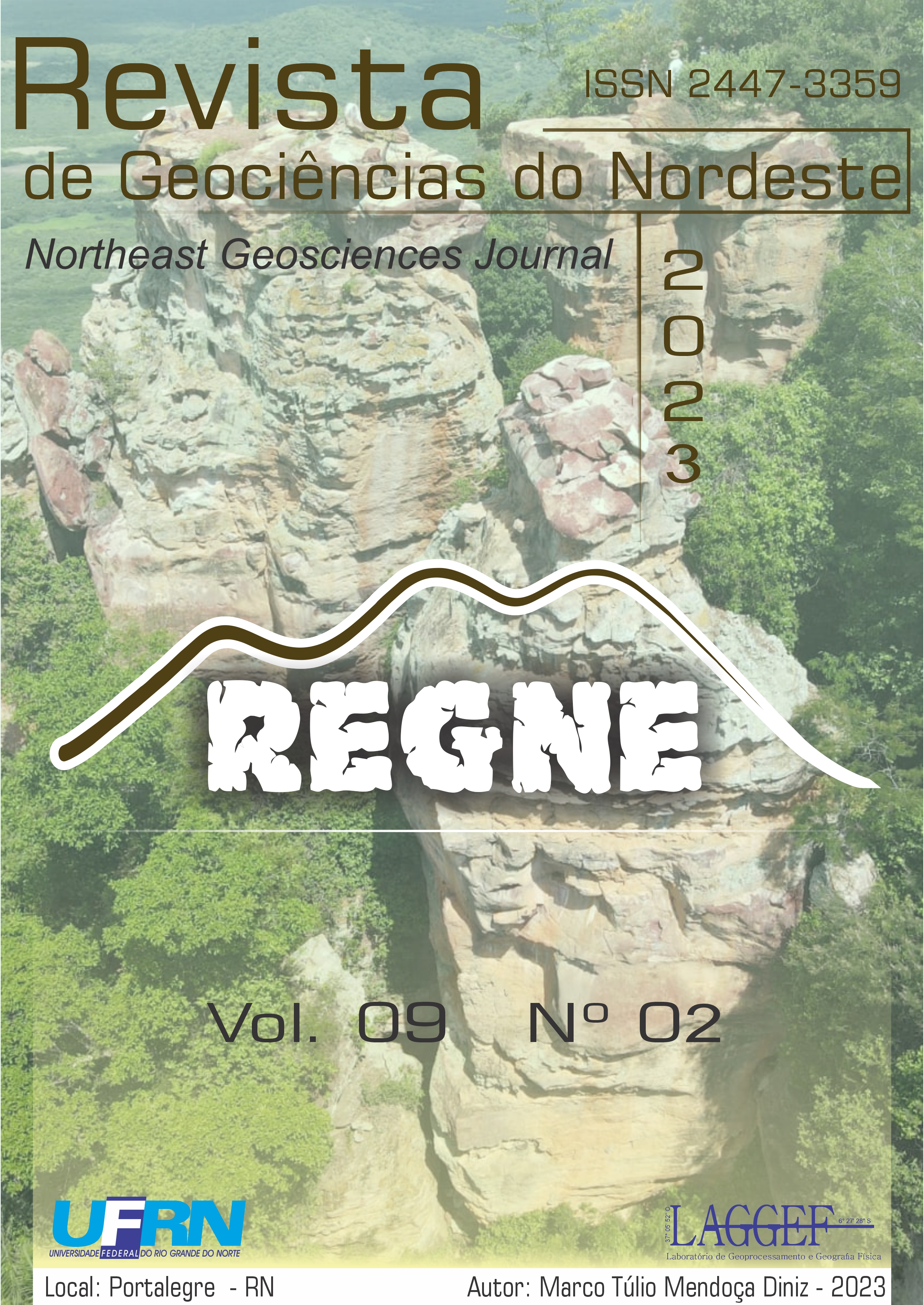Análise Espacial Integrada da Degradação da Terra no Submédio São Francisco, Brasil
Integrated Spatial Analysis of Land Degradation in Submedium São Francisco Basin, Brazil
DOI:
https://doi.org/10.21680/2447-3359.2023v9n2ID33877Resumo
O estudo analisou a degradação da terra na bacia do Submédio São Francisco por meio de índices segundo o modelo FPEIR (Força-Pressão-Estado-Impacto-Resposta). Para seleção dos 17 indicadores foi feita revisão bibliográfica e análise de correlação, os indicadores foram gerados em grades de 5 x 5 km no SIG QGIS através de dados secundários e primários. Foi feito um tratamento para exclusão de outliers, seguido de normalização dos indicadores. Foram gerados índices para cada componente FPEIR por meio da mediana dos indicadores e elaborados mapas dos indicadores e índices. As áreas mais vulneráveis à degradação (maiores valores nos índices FPEI) localizam-se principalmente nas regiões noroeste, centro e sudeste da bacia. Em relação à resposta (maiores valores no índice R), destacam-se as áreas a oeste, noroeste e sudeste da bacia. Os indicadores que mais influenciaram os índices FPEI foram Índice de Desenvolvimento Humano Municipal, estabelecimentos com produtor ocupante, desmatamento, erodibilidade, índice de aridez e pastagens degradadas. E no caso do índice de Resposta, a orientação técnica e programas de crédito. As políticas públicas e iniciativas particulares de restauração da qualidade ambiental são fundamentais para reverter o processo de degradação, contribuindo para o manejo sustentável da Caatinga.
Downloads
Downloads
Publicado
Como Citar
Edição
Seção
Licença
Copyright (c) 2023 Revista de Geociências do Nordeste

Este trabalho está licenciado sob uma licença Creative Commons Attribution 4.0 International License.


 Português (Brasil)
Português (Brasil) English
English








